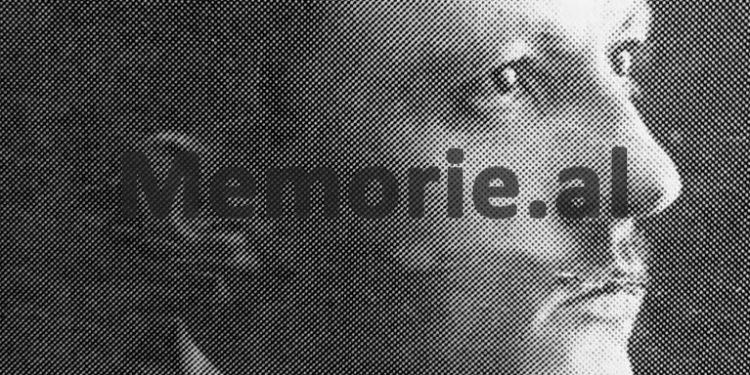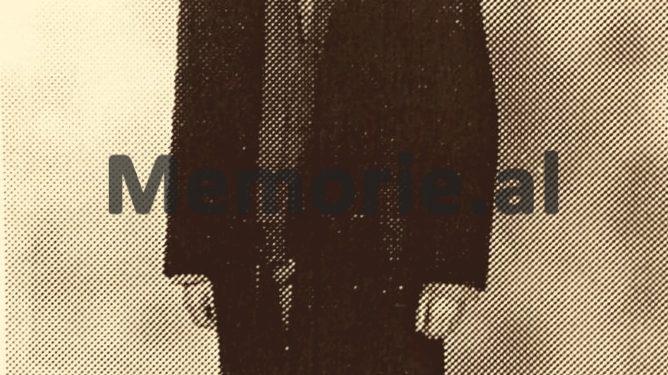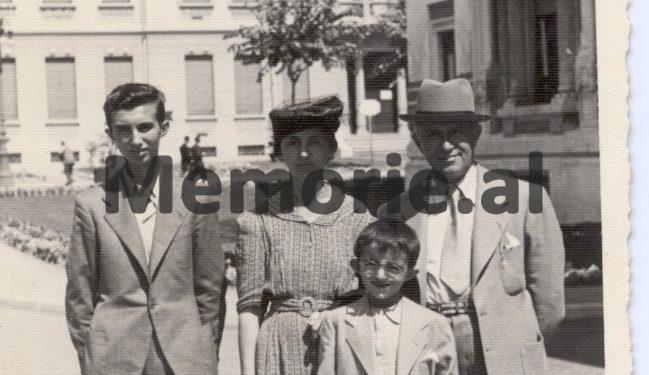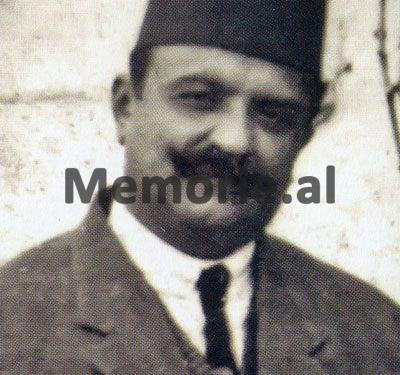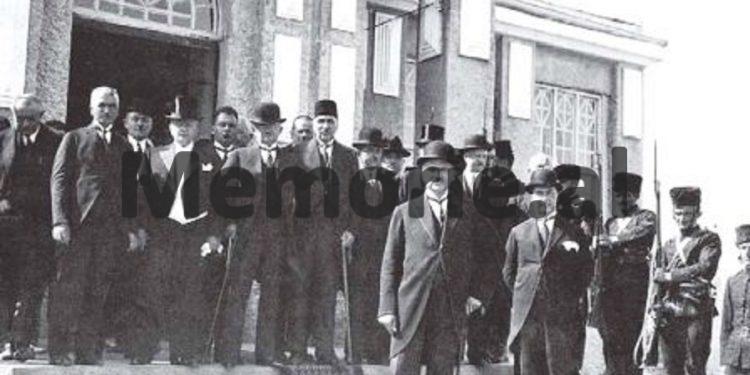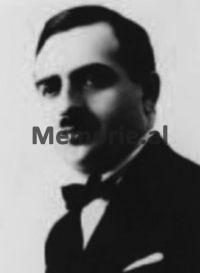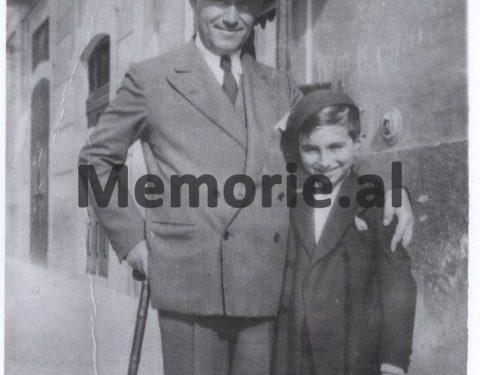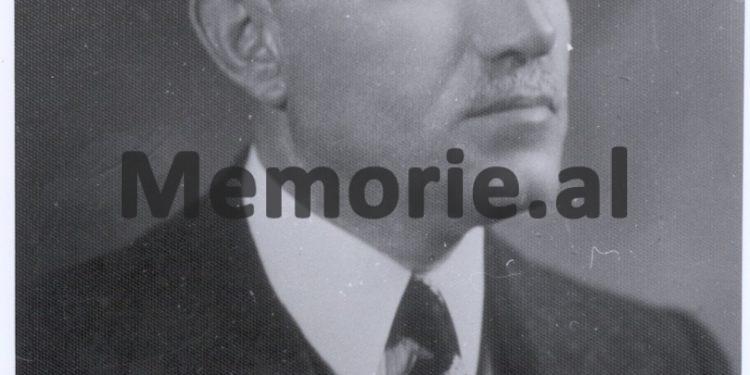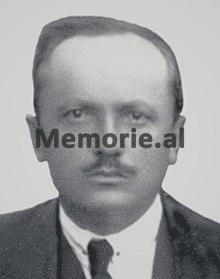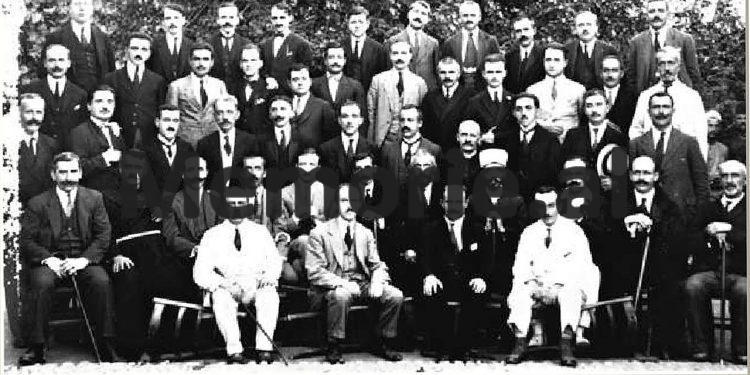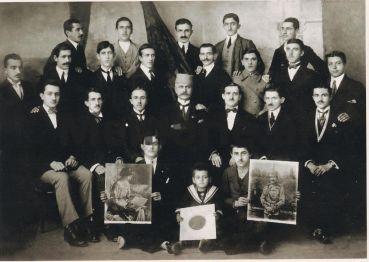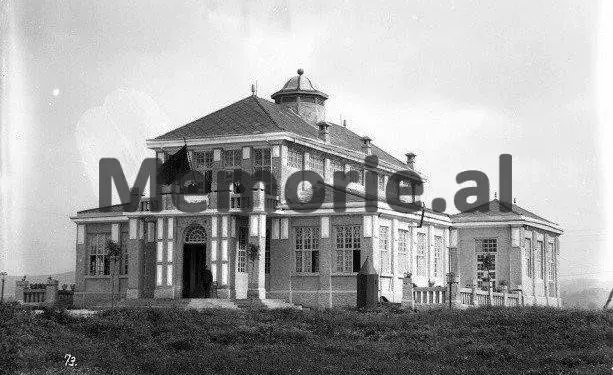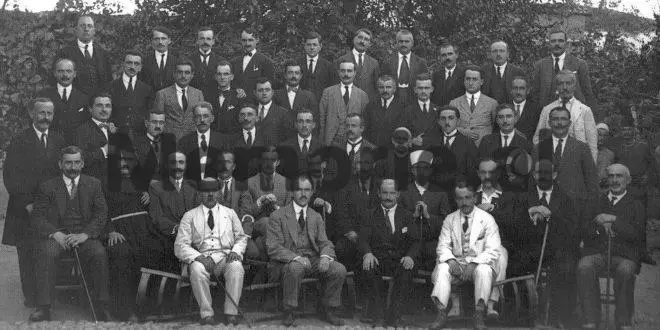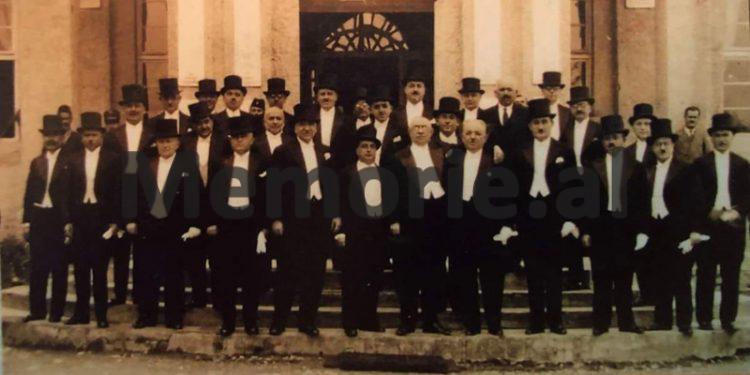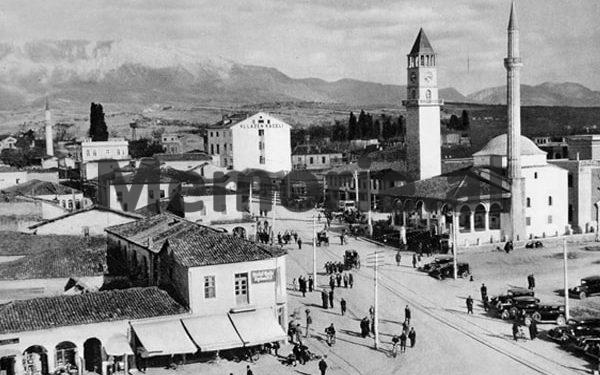Dashnor Kaloçi
Memorie.al publishes the unknown story of Sejfi Vllamasi, originally from Cologne, who after being educated first in his hometown and then in the Turkish gymnasium of Edrene where he met and formed a close friendship with Fan Noli who was studying in the gymnasium Greek of that city, then he sent a letter to the High Gate, asking for a right to study and it was completed by being sent to Vienna, where he graduated with honors from the Agricultural University of that city being awarded the title “Do Diploma”, and after graduation, Sejfiu engaged in scientific research in the field of Veterinary Medicine and managed to invent a cure for sheep disease, for which he was awarded the title “Doctor in Zoo-Veterinary Sciences” and 2000 gold napoleons as a reward, which he refused and exchanged for a month off, going to a camp with his fiancée.
Sejfi’s return to Albania where after working for some time as a veterinarian in Tirana, he engaged in patriotic activities for the benefit of the Albanian cause, participating in the meeting of the Monastery Committee in 1905 together with Bajo Topulli, Fehim Zavalani, Gjergji Qirjazi, etc., as well as in the following years, working closely with Ismail Qemali, Sait Najdeni, Spiro Dinen, Fuat Bej Dibra, etc., who drafted and compiled the political platform that led to the declaration of Albania’s Independence in 1912 -të. The appointment of Sejfiu in 1914 as the prefect of Shkodra Region and then in 1918 in the National Committee for the Defense of Kosovo, headed by the patriot Hoxha Kadri Prishtina, to come in 1920 where he participated in the Congress of Lushnja, where he was elected Senator three times, and then in the years 1920-’24, where he was elected deputy of Kolonja in the first Albanian parliament and as chairman of the parliamentary group of the People’s Party.
Sejfi’s departure from Albania after the failure of Fan Noli’s government resulting from the “June Revolution” and his long emigration as a fan and anti-Zogist to Italy and France, where he met and kept Enver Hoxha for some time at his own expense , after the request made by his close friend, Bahri Omari, when Enver was deprived of a scholarship by the then Ministry of Education headed by Mirash Ivanaj, because he had not passed any exam. Sejfi’s return to Albania in 1942 and his arrest in 1947 after a meeting he and his brother, Muharrem, had with Enver Hoxha in 1945 during the Special Trial, urging him not to condemned Bahri Omar, telling him that he was a prominent diplomat and patriot, and Enver’s reply, saying: ‘Sejfi, thank goodness we did not find any compromising documents for you either, that we would not have the bullet at all’.
Sejfi’s arrest in 1947 and his sentence of ten years in Burrell Prison where he wrote his memoirs which after his release from prison he would type and summarize in a book entitled, “Political Confrontations in Albania, 1897-1942”. Sejfi was released from prison and interned in 1957 at the Gosa Farm in Kavaja, where he appeared before Enver Hoxha and demanded that he be given the patriotic pension that had been wrongfully taken away from him. Sejfi’s death in the city of Fier in 1975 at the age of 96, where at his funeral among dozens of citizens of Fier who went to honor him, was Professor Alex Buda, president of the Academy of Sciences of the People’s Republic of Albania.
“When Enver Hoxha remained in a miserable economic situation in Paris after his scholarship was cut by the Minister of Education, Mirash Ivanaj, because he could not take any exam, his brother-in-law, Bahri Omari, called my uncle, Sejfi Vllamas who was then in France, and said; Sejfi, please keep my rebel, Enver, for a while, so that we can fix him somewhere in some work ‘. My uncle had a close friend Bari and kept Enver for some time at his own expense in his apartment in Paris, until Omar, through some of his friends, arranged Enver to work for the Albanian legation in Brussels “.
This is what Sejfi Vllamas’s nephew (son of Ali’s brother, whom Sejfi adopted as his son because he had no children) testifies for Memorie.al, who tells us about his uncle’s life since his time as an anti-Zogist immigrant France, that during the years of the communist regime, from the meeting with Enver Hoxha at the Hotel “Dajti”, the arrest of the long prison in Burrel after being accused as an agent of the Anglo-Americans, and his vicissitudes in internment until he died in a state miserable in the city of Fier in January 1975.
Return to Albania in 1942
After a long time of 15 years in political emigration as a fan, after he had refused some positions to King Zog, in 1942, Sejfi Vllamasi finally returned to Albania. In this regard, his nephew Faslli Vllamasi (former mechanical engineer) recalls: “As soon as he came to Albania, Sejfiu together with his wife Naxhije Angoni, settled in the house of his friend, Prof. Aleksandër Xhuvani, who had a During the war, Sejfiu did not mix with any political force at all, but remained completely indifferent, living on a vital pension which was tied to him by Prime Minister Mustafa Kruja, for his patriotic activity in the 1920s. He hardly left the house at all and only studied, as he had a very rich library. After staying for some time in the house of Prof. Xhuvani, Sejfiu rented an apartment in the palaces of Lana, where he stayed until the beginning of 1945, when the communist regime that came to power, expelled him from there, confiscating some of his household equipment. During the war years in Tirana lived his other uncle Muharremi (as a tenant to Halil Mëniku) who was more the youngest of four Vllamasi brothers. Enver Hoxha was a close friend of our Vllamasi family and I remember that in 1942, Uncle Muharremi had invited him for lunch at home, together with Dr. Ymer Dishnica. During that lunch, Enver asked my father Ali, a beautiful nagant that he carried with him, but his father did not give it to him, telling him that he had a memory of the Muharram. After that, Enver said to him: ‘Ali, keep the nagant, but use it while fighting for us. And so, it happened, father Aliu became Chairman of the National Liberation Council of the village of Novosela in Kolonja and together with Hajrulla Taren, and Ceno and Muharrem Maluka, etc., organized the Anti-Fascist Movement in the villages of our province. In the same way, we, his sons and nephews, joined the Movement and all became partisans. That lunch at the house of my uncle, Muharrem, in Tirana, was ruined by Halil Mëniku, because when he saw Enver Hoxha there, he addressed his uncle, saying: ‘Muharrem, what do you have that you have gathered here … “?! Faslliu, on the friendship that Enver Hoxha had with the Vllamasi family.
10 years in Burrell Prison
How did the events unfold after the end of the War for the anti-Zogist emigrant Sejfi Vllamasi, who once in Paris had helped by keeping bread with Enver Hoxha who had already become the Prime Minister of Albania and with an absolute power? Regarding this, Faslliu recalls: “In April 1945, Sejfiu together with his other uncle Muharrem (once he was vice-president of the Association” Union “with Avni Rustemi), went to the Hotel” Dajti “and met Enver Hoxha. During the conversation they they told him that they had only gone to tell him not to shoot Bahri Omar, as he had been a prominent diplomat and patriot. Enver after listening to them to the end, replied: ‘Saif, say thank you for not We also found compromising documents, that we would not have saved a bullet ‘?! Then the conversation did not continue and they separated. It did not take more than two years and in May 1947, the State Security arrested him. Sejfiu, who was accused of agitation and propaganda and of having links with Anglo-American missions, was detained for a short time in the Tirana investigator, and was tried behind closed doors and sentenced to ten years in prison. years of political imprisonment, adding to the charge of why he had not denounced his two accomplices, MP Riza Dani and former Minister Xhevat Korça, who had been arrested some time before him. The accusations against Sejfi were all fabricated, because he never spoke to anyone, but his arrest came as a result of the sentencing of two baxhanaks, Riza Dani and Xhevat Korça. Sejfiu served his entire sentence of ten years in Burrel prison, where Sefedin Dumen (former militia commander in Cologne, Petrit Dume’s uncle and Baki’s father “Martyr of War”, who was close to him in his cell, was died in prison), as well as his cousin Xhevat Korça. Sejfiu was released from Burrel prison in 1957, serving his full sentence, without being pardoned for a single day. During the ten years that Sejfiu remained in the cells of Burrel prison, he compiled and wrote the book “Political Confrontations in Albania 1897-1942” (which has already become known and famous being republished twice in 1994 and 2000), in which he describes with objectivity the main events and characters of the Albanian politics of that time “, remembers Faslli Vllamasi.
Meeting Enver in the pig stable
After serving his sentence as soon as he was released from Burrel prison in 1957, Sejfiu came and settled in a room in New Tirana, where he was received by his wife Naxhija, who had followed him throughout his sentence. in Burrel. Regarding this period of time, Faslli Vllamasi recalls: “Even after his release from prison, the State Security organs did not let Sejfi rest in peace due to old age. In that apartment in New Tirana, they did not leave him anymore. that a year, because after the ‘class war’ (after the Tirana Conference) had intensified a lot, the competent bodies “suggested” to him that in order to escape a second prison, he should leave and go to Gosa of Kavaja to Sejfiu obeyed the “suggestion” made to him and together with his wife settled in Gosë, Kavaja, working as a veterinarian in the pig stable of that Agricultural Enterprises During those years when he worked there as a veterinarian, Enver Hoxha went to those stables for a visit, to which Sejfiu came forward and asked him to give him the pension that had been unjustly terminated when he was imprisoned. , as he was in his 80s and had not opportunity to work dot. Enver replied to Sejfi, saying: ‘Work Sejfi, because you do not deserve a pension’. After that visit that Enver made there in Gosa Farm, Sejfi was removed from there and exiled for many years to the villages of Elbasan in Cërrik and Belsh, as well as in Ballsh of Fier. During the last years of his long life, which Sejfiu spent in the city of Fier, he associated and drank his morning coffee with the father of Pirro Gusho, the First Secretary of Fier, who had just been repatriated from the long exile of US. This period of time corresponds to a trip of Enver Hoxha to Gjirokastra, for which in his memoirs published in 1984 in the book “When the foundations of the New Albania were laid”, among other things he writes: ‘While I was traveling to Gjirokastra, at the entrance of Fier, I saw on the street Sejfi Vllamasi, who was bent over by a deep old age and I said to him: I suffer that you have traveled all over the world “. Also in that book Enver Hoxha writes about 15 pages for Sejfi and his brother, Muharrem Vllamasi, cursing them and labeling them as ‘bourgeois and gamblers’, etc., and then praises them “, recalls Faslliu, the nephew of Sejfi Vllamasi, regarding the attitude of Enver Hoxha to his former friend, who had kept him with bread during the years when he was left without any income in Paris, whom he sometimes cursed and sometimes praised in his memories.
Alex Buda dies in Fier and is buried
Although Sejfiu went through many vicissitudes in his life with the long years of imprisonment and occasional internments, he was able to live very long and died at the age of 97, in his apartment in the city of Fier, where he spent the last years of his life. In this regard, nephew Faslliu recalls: “After many internments in the villages of Elbasan and Fier, finally at a deep age Sejfiu was left to live in the city of Fier. In those years he was taken with his book” Political Confrontations in Albania 1897-1942 “which he had written in Burrel prison and printed from a manuscript himself in three copies. One copy he submitted to the Institute of History, another copy he gave to my older brother, Novruz, and kept the third copy for himself.Although Seifi was a staunch opponent of communism, he never spoke or cursed the regime in power.He talked to his close friends and often said to you: ‘Guys, hold on tight and stay , that dogmatic communism in Albania has fallen into a deep abyss’. His opposition to communism had not come because of the treatment he received personally, it had its origins in the mid-1920s when he debated long with Fan Noli, why he was put in charge of KONARE and why she had gone to the Crimea with her delegation. In the city of Fier where Faslliu spent the last years of his life in extreme misery, he was loved and respected by all. This was confirmed when he died in January 1975, where at his funeral, although none of us family members could go, (as he had previously informed us by telegrams, not to go, as knew that power was persecuting us from him), attended by hundreds of people, as a sign of the respect they had for him. Also present at his funeral was the former President of the Academy of Sciences Prof. Alekas Buda, honoring him as one of his closest friends. Less than two years after his death, police officers on orders from above attempted to evict his wife, Naxhijen, who was left completely alone (as they had no children). Out of great sadness that she would end up in exile again, in a turbulent state of mind, she ended her life, hanging herself at home, with the collar of her husband, whom she had loved so much and had not abandoned. never even in the most difficult moments of life “, Faslliu remembers the tragic end of his uncle’s family, Sejfi Vllamasi, one of the main characters and actors of Albanian politics of the first half of the twentieth century, emigrated for 15 years outside Albania as an opponent of Zog, who was also persecuted by Enver Hoxha, the man with whom he had shared a mouthful in Paris.
Who was Sejfi Vllamasi?
Sejfiu was born in the village of Novoselë in Kolonjë on September 24, 1879. He completed his primary education in his native village in Turkish and then, with the help of his uncle, Adem, he continued his high school education in Edirne, then the capital of Turkey. After the death of his uncle, Sejfiu was taken care of by helping him financially, his compatriots, patriots from the most famous of Kolonja and beyond, such as Neim Demisha (Topollaj), Shahin Kolonja and Veliko Mesika. During his years of Turkish high school, Sejfiu also met his compatriot, Fan Noli, who was studying at the Greek high school in Edirne, with whom he formed a close friendship. After graduating from high school with high results, Sejfiu wrote a letter to the High Gate, asking for a right to study, which was completed by the Turkish government, which sent him to continue his higher studies at the Agricultural University of Vienna. in Austria, in the branch of Veterinary Medicine. Sejfiu finished his higher studies with excellent results and at the end he was awarded the title “Do Diploma”. Even during the period of studies in Vienna, Sejfiu was financially assisted by Nasuf Bey Novosela and Shahin Kolonja. After graduation, Sejfiu undertook scientific research in the field of Veterinary Medicine and managed to invent a cure for sheep disease, for which he was awarded the title “Doctor in Zoo-Veterinary Sciences” and 2000 gold napoleons, which he did not accept and exchanged for a month off, going to a camp with his fiancée. In 1905, Sejfiu left Vienna and returned to Albania, where he was appointed chief veterinarian of Tirana. In 1905, he participated in the Committee of the Monastery together with Bajo Topulli, Fehim Zavalani, Gjergji Qirjazi, etc. For his patriotic activity in those years, he was arrested by the High Gate together with Halit Bërzeshta and exiled to Anatolia., where he remained for three years until 1908, whence he was freed from the riots of the Entrance. During the years 1908-1912, Sejfiu developed an intense patriotic activity for the benefit of the Albanian cause, working closely with Ismail Qemali, Seit Najdeni, Fuat Bej Dibra, Spiro Dinen, etc., who elaborated the policy platform which led to the proclamation of independence of Albania on November 28, 1912. In the First World War, with the intervention of Sejfi near the English consul, it became possible to stop the massacres of two Greek battalions to the Muslim population of Cologne, for which Fan Noli criticized the Greek Orthodox Church as implicated in those events. In 1914, Sejfi Vllamasi was appointed Prefect of Shkodra and during that time took part in the Koplik war and was later elected to the Committee formed in Shkodra for the Protection of the National Border. Also, in 1918, he was elected to the Committee for the Defense of Kosovo, while in 1920, Sejfiu participated in the Congress of Lushnja, as one of the main figures from where he was elected Senator three times. Later, during the years 1920-1924, he was elected as a deputy of Kolonja in the Albanian Parliament, being also the chairman of the parliamentary group of the People’s Party. After 1924, with the failure of the government of Fan Noli, Sejfiu emigrated outside Albania with a group of politicians known as fanolists and anti-Zogists, such as: Bahri Omari, Sheh Karbunara, Qazim Koculi, Qazim Mulleti, Hasan Prishtina, etc. From 1924 to 1942 he settled in several European countries, such as France, Austria, Switzerland, Italy, etc. In 1942, he returned to Albania and locked himself in his private life, completely avoiding politics, to dedicate himself to writing his memoirs, which years later he summarized in the book, “Political Confrontations in Albania 1897 -1942 “. A book which was published only after the ’90s and is considered one of the best and most objective works of the events of that period of time in which Vllamasi describes them./Memorie.al




